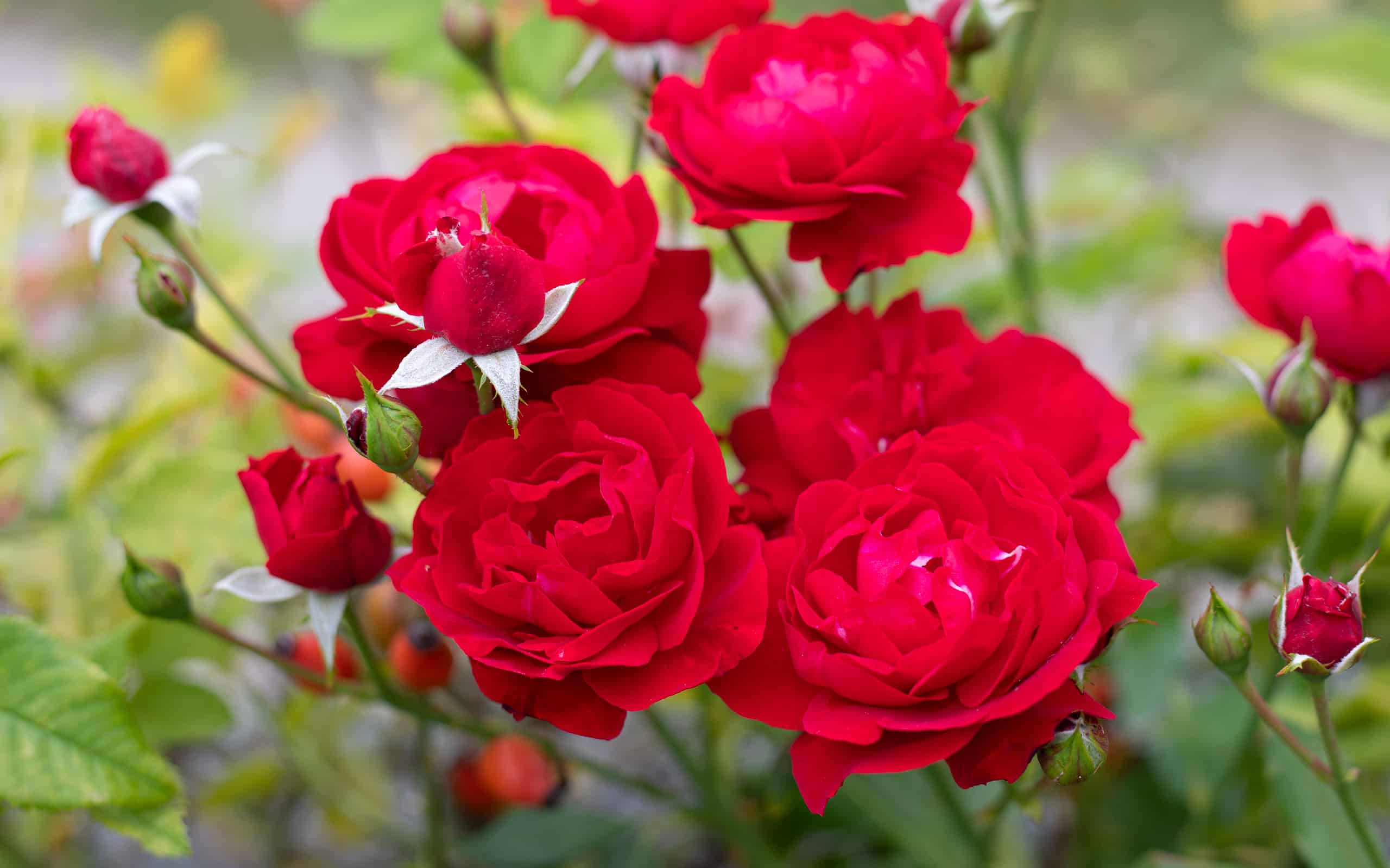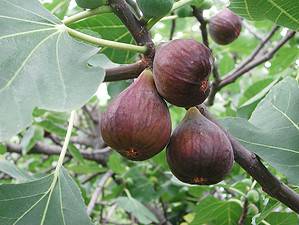In the realm of nature’s poetry, flowers emerge as the silent messengers of emotions. Amongst the vibrant tapestry of blooms, there exists a special category that speaks of love that transcends time, a love for eternity. These flowers, with their exquisite petals and profound symbolism, carry a message of enduring affection that resonates deeply with the human heart.
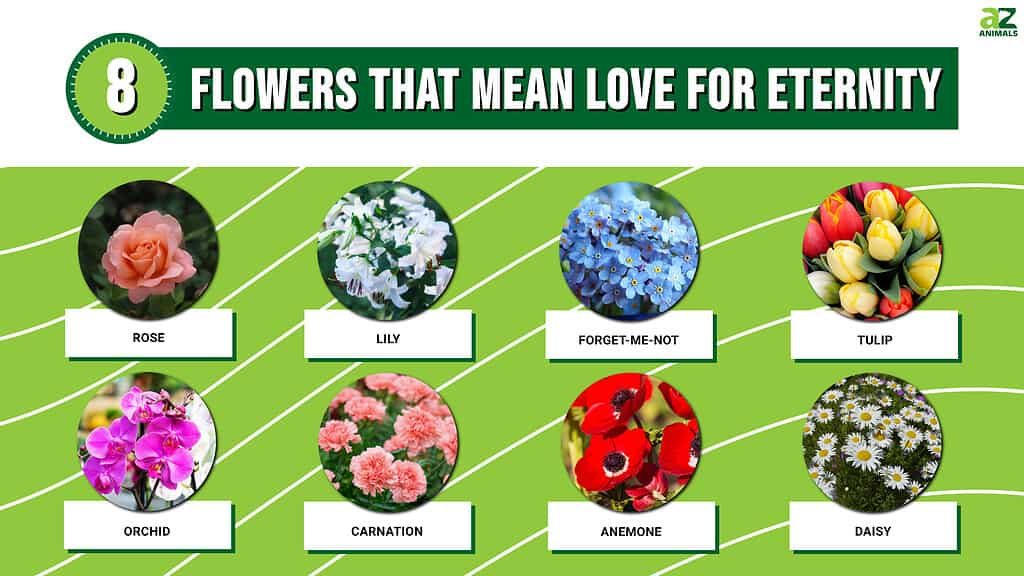
Love, an emotion so powerful, finds a timeless expression in the language of flowers. These blooms possess the remarkable ability to convey sentiments of eternal love without uttering a single word. They do not adhere to the limitations of language; instead, they transcend the boundaries of time, capturing the essence of a love that lasts forever.
Let’s go on a floral journey and explore some different types of flowers that reflect the meaning of “love for eternity.” Each petal and color choice tells a story, weaving a narrative of everlasting devotion and affection. These blooms have graced weddings, anniversaries, and declarations of love for generations, symbolizing the unbreakable bond between lovers. To put it simply, you can’t go wrong when giving any of these flowers to someone you truly care for!
1. Rose
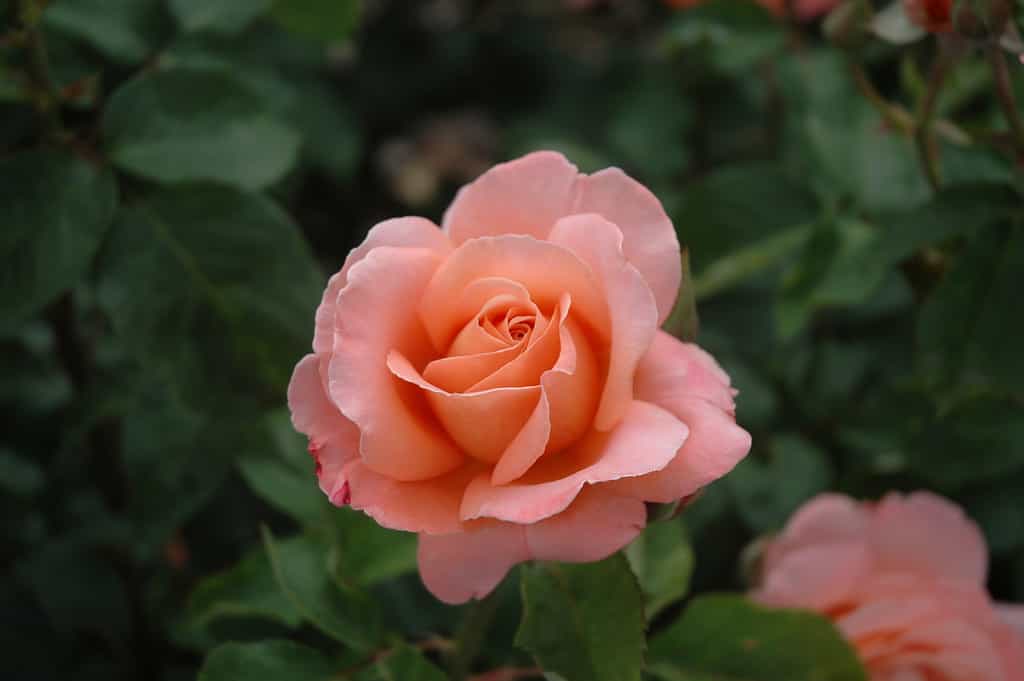
Roses symbolize love, friendship, innocence, and gratitude.
©Carmen Hauser/Shutterstock.com
Roses have long been a symbol of enduring love, representing a profound connection that transcends time. Human culture has woven this timeless association between roses and eternal love for centuries, making them a universal emblem of affection. The red rose, in particular, carries the most potent message of love for eternity. Its rich, velvety petals have come to symbolize deep passion and commitment in romantic relationships. When one gives or receives a red rose, it signifies a promise of everlasting love and devotion.
Beyond eternal love, roses carry various other symbolic meanings. White roses represent purity and innocence, making them a popular choice for weddings and new beginnings. Yellow roses convey friendship and joy, making them a great gift to celebrate the bonds of friendship. Pink roses, on the other hand, express gratitude and admiration, making them suitable for showing appreciation. Each color of rose holds its unique significance, allowing people to convey their emotions through these beautiful blooms.
Moreover, the fragrance of roses adds to their symbolism. The sweet, intoxicating scent of roses has the power to evoke deep emotions and create lasting memories. This fragrance further reinforces the idea of eternal love, as it lingers in the air long after the physical rose has withered.
Literature, art, and folklore have used roses to tell stories of love that withstand the test of time. From Shakespeare’s sonnets to classic love stories, the image of a rose often appears as a symbol of enduring affection. In this way, roses serve as a reminder that love, like these beautiful flowers, can thrive and endure, bringing joy and meaning to our lives for eternity.
2. Lily
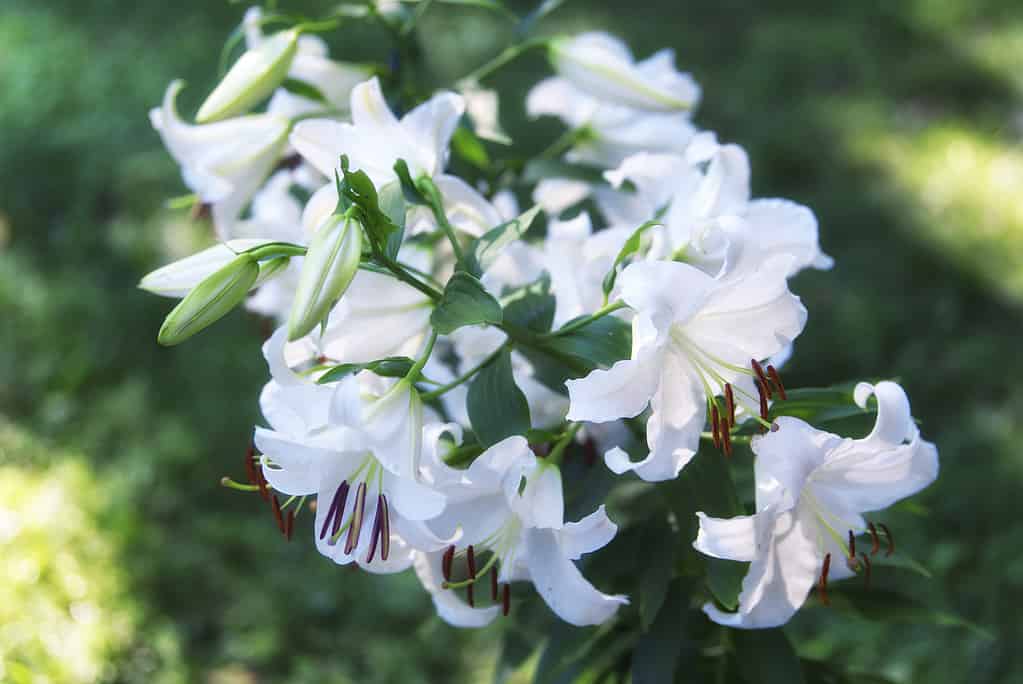
Lilies symbolize purity, virtue, passion, and motherhood.
©Daniel Hanscom/iStock via Getty Images
Lilies have an elegant and timeless beauty. They have long been associated with deep and enduring love, making them a symbol of “love for eternity.” This symbolism is deeply rooted in history and culture, transcending borders and generations.
Various cultures and religions often link lilies to purity and virtue. The white lily, in particular, represents purity and innocence, and believers consider this purity a reflection of an untainted and everlasting love. The phrase “love for eternity” encapsulates the idea of love’s purity and endurance.
Lilies also carry religious significance. In Christianity, the Madonna Lily is associated with the Virgin Mary and her immaculate love and motherhood. This connection further reinforces the idea of love’s eternal nature, as Mary’s love for her son, Jesus, is an eternal and unwavering love.
Beyond their connection to love, lilies symbolize renewal and rebirth. Their bulbs lie dormant in the ground during winter, only to bloom anew in the spring. This cycle of rebirth aligns with the idea of love that can endure even through challenges and hardships, rejuvenating and blossoming afresh.
Moreover, people often see lilies at funerals and memorial services, where they symbolize the promise of the deceased’s soul finding eternal peace and love in the afterlife. This ties in with the concept of love transcending mortal existence and continuing into eternity.
3. Forget-Me-Not
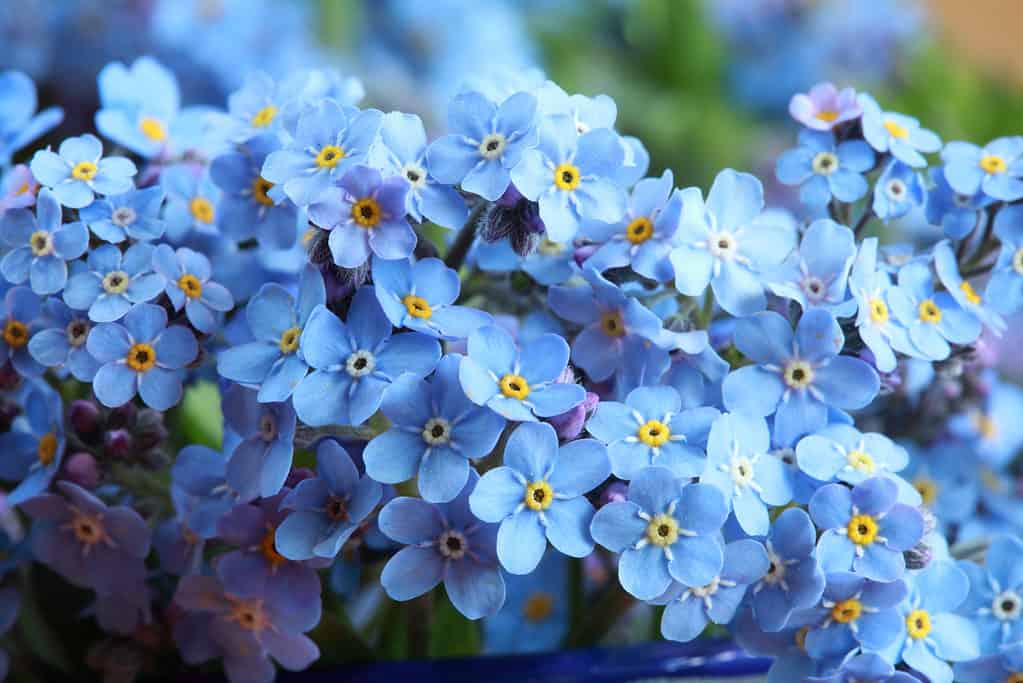
The popular and stunning forget-me-not flower can symbolize love for eternity as well as true love and remembrance.
©Shulevskyy Volodymyr/Shutterstock.com
Forget-me-nots, scientifically known as Myosotis, carry a poignant symbolism deeply rooted in love and remembrance. These delicate blue blossoms are often associated with the enduring sentiment of “love for eternity.” Their name itself underscores the essence of not being forgotten. This makes them a fitting emblem of everlasting affection.
The forget-me-not’s significance as a symbol of eternal love traces back to a German legend. According to the story, a medieval knight and his lady were strolling along the banks of a river. As he reached down to pick a bouquet of these small blue flowers, the heaviness of his armor caused him to lose his balance and tumble into the water below. As the current carried him away, he threw the bouquet to his love, crying out, “Forget me not!” Thus, the flowers represent his plea to remember their love even in his absence.
Beyond their association with eternal love, forget-me-nots also symbolize fidelity and loyalty. Their tiny, five-petaled blooms evoke a sense of steadfastness and devotion. In this way, they serve as a reminder of the enduring commitment that exists in relationships.
Furthermore, forget-me-nots are a symbol of remembrance and the preservation of memories. People often plant them in memorial gardens or use them as a tribute to honor loved ones who have passed away. The flowers’ enduring presence throughout the years mirrors the way cherished memories persist in our hearts.
4. Tulip
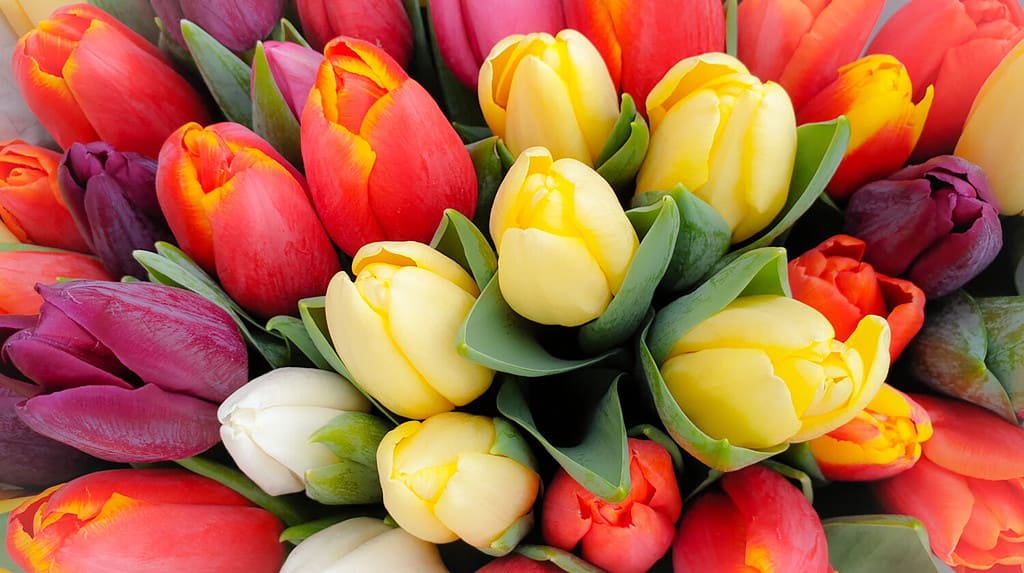
A well-known symbol of spring and love for eternity, tulips also represent declarations of love, elegance, and grace.
©Heynicepictures/Shutterstock.com
Tulips have vibrant colors and graceful shapes. They symbolize various sentiments, including the notion of “love for eternity.” While tulips have a rich cultural history, their association with eternal love has evolved.
In the language of flowers, or floriography, red tulips express passionate love and romance. This fiery hue conveys the idea that love can endure through time, remaining fervent and unwavering. It’s this passionate connotation that links tulips to the concept of “love for eternity.”
Tulips also represent perfect love, making them a suitable emblem for everlasting affection. Their elegant form and symmetry embody the idea of a love that is balanced and harmonious, transcending the trials and tribulations of life.
Also, yellow tulips symbolize cheerful thoughts and sunshine, reflecting the joy and happiness that love can bring. This positivity and brightness serve as a reminder that love, when nurtured and cherished, can last a lifetime.
In some cultures, tulips mean royalty and wealth, which adds an element of grandeur to their symbolism. This connection implies that love, like royalty, is timeless and enduring.
Tulips represent grace and elegance, signifying a refined and enduring love. This notion aligns with the concept of “love for eternity” as it suggests a love that is both enduring and characterized by grace.
5. Orchid
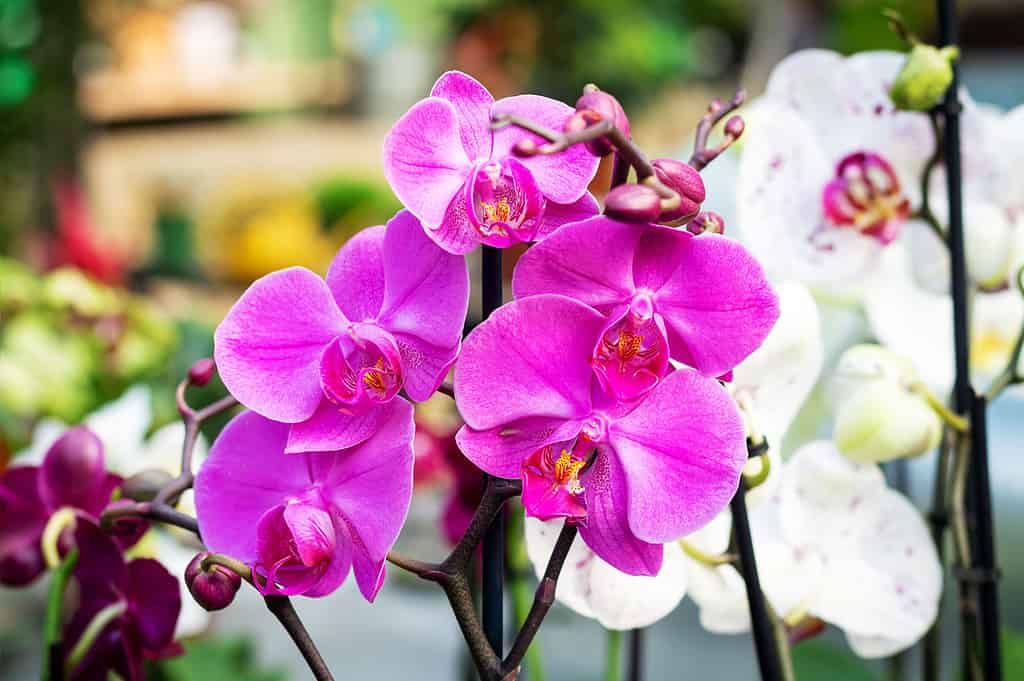
Orchids are beautiful symbols of love for eternity, as well as exotic beauty, strength, and enduring love.
©iStock.com/Dmitriy Sidor
Orchids are quite renowned for their exotic beauty and elegance, and they hold a unique symbolism that extends to the concept of “love for eternity.” These intricate flowers have a rich history of representing various sentiments and emotions, including profound and lasting love.
Orchids are often associated with love, desire, and passion. Their alluring appearance and intricate shapes convey a sense of fascination and deep attraction, reflecting the intensity of love that can endure through time. This connection to love’s enduring nature makes orchids a symbol of “love for eternity.”
Beyond their romantic symbolism, orchids are also linked to luxury, wealth, and refinement. In many cultures, they have been regarded as a symbol of opulence and prosperity. This association suggests that love, when cherished and nurtured, can lead to a rich and fulfilling life, echoing the idea of an enduring and prosperous love.
Orchids are admired for their resilience and ability to thrive in diverse environments. This quality mirrors the strength and endurance required in love and relationships. Just as orchids adapt and flourish under various conditions, love can overcome challenges and endure over time.
In some Asian cultures, orchids are symbols of fertility and virility. This aspect adds a layer of significance to their symbolism, as they represent the eternal cycle of life and the continuity of love through generations.
Furthermore, orchids are often given as gifts to express admiration and respect. This underscores their association with long-lasting bonds, as admiration and respect are essential components of enduring love.
6. Carnation
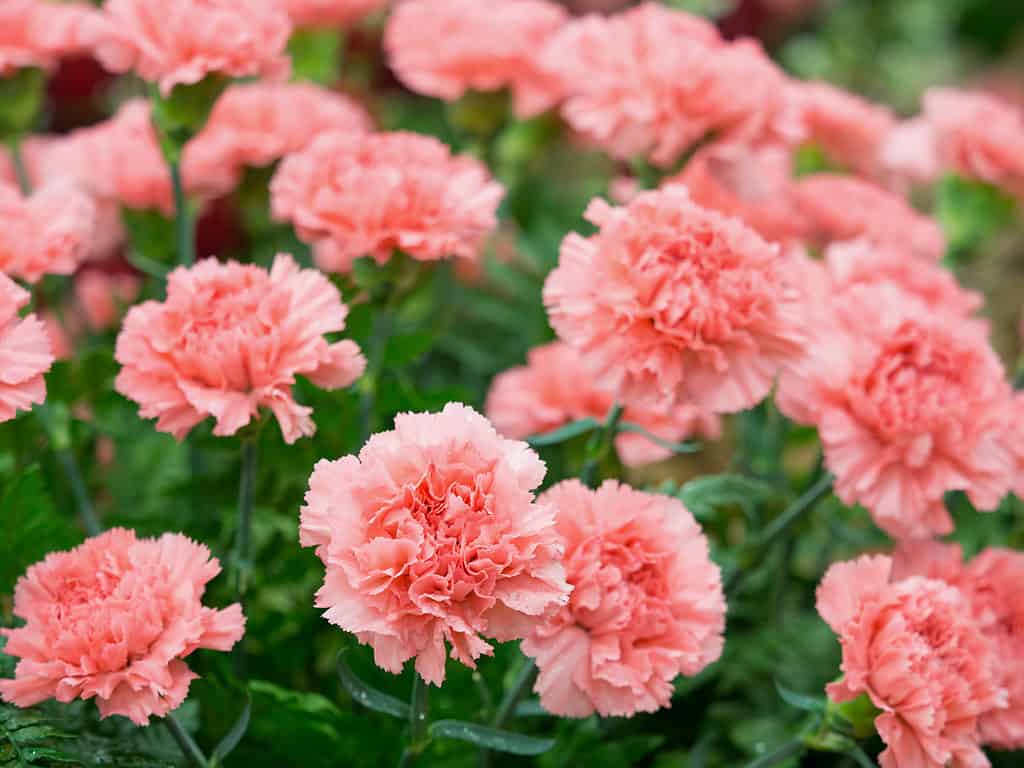
Carnations are popular flowers that symbolize love, as well as fascination, luck, and the love of a mother.
©yoshi0511/Shutterstock.com
Carnations, with their delicate petals and sweet fragrance, have been infused with symbolism throughout history, representing a range of emotions and concepts, including the sentiment of “love for eternity.” The association of carnations with eternal love is deeply rooted in their historical significance.
The practice of using carnations to convey love goes back to ancient Greek and Roman mythology. According to legend, these flowers first bloomed from the tears of the goddess Venus as she wept for her beloved Adonis. This mythological origin story links carnations to enduring love and eternal longing, reinforcing the idea of “love for eternity.”
Different colors of carnations carry distinct meanings. Red carnations symbolize deep love and admiration, making them a powerful emblem of everlasting affection. This passionate connotation resonates with the concept of love that endures through time.
White carnations represent pure love and innocence. They evoke the idea of a love that is untainted and unchanging, akin to the notion of “love for eternity.” White carnations are also memorial tributes, signifying remembrance and eternal love for those who have passed away.
Pink carnations convey gratitude and appreciation. When given as a gift, they express a sense of admiration and fondness that can stand the test of time. This appreciation is a testament to the enduring nature of love.
In some cultures, carnations mean motherly love. Children give them to mothers on Mother’s Day to symbolize the eternal love and devotion between a mother and child.
7. Anemone
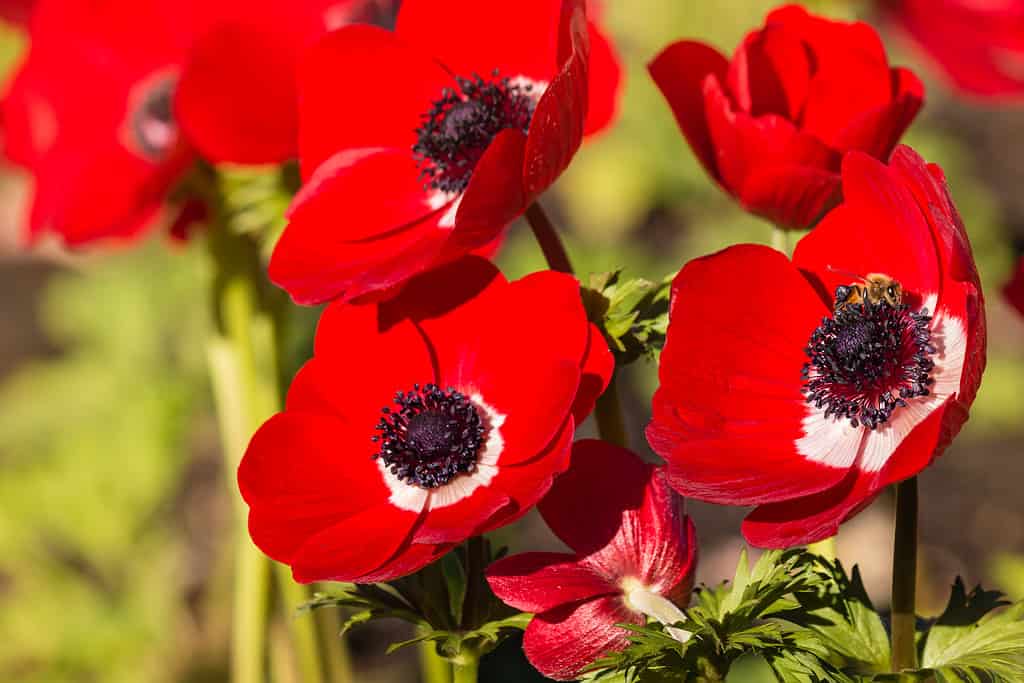
The stunning anemone bloom is associated with its unique appearance and eternal love, as well as anticipation and protection from evil.
©iStock.com/PatrikStedrak
Anemone flowers have delicate petals and striking colors. They convey a profound symbolism that includes the sentiment of “love for eternity.” These captivating blossoms have been cherished for centuries, carrying with them a rich tapestry of meanings and emotions.
The anemone’s connection to eternal love is rooted in Greek mythology. According to legend, the anemone flower sprang from the tears of Aphrodite, the goddess of love, as she mourned the death of her beloved Adonis. This mythological origin story imbues anemones with the idea of enduring love that transcends even death, making them a poignant symbol of “love for eternity.”
Anemones come in various colors, each carrying its distinct symbolism. Red anemones, for example, symbolize passionate love and undying devotion. This fiery hue reflects the intensity of love that remains constant throughout time.
White anemones represent purity and innocence, reflecting a love that is untarnished and unwavering. Their pristine petals evoke the concept of a love that endures and remains pure.
Purple anemones often symbolize protection and anticipation. This interpretation aligns with the notion that love can be a shelter and a source of hope, continuing indefinitely.
Beyond their association with love, anemones are also symbols of luck and protection in some cultures. A daisy is thought to bring good fortune and ward off evil spirits, emphasizing their role in safeguarding the bonds of love.
8. Daisy

Daisies symbolize love for eternity and several other things, such as innocence, purity, friendship, and loyalty.
©Heeji Choi/Shutterstock.com
Daisy flowers, with their simple yet charming appearance, hold a timeless symbolism that includes the sentiment of “love for eternity.” These unpretentious blossoms have been cherished for their profound meanings and associations throughout history.
The daisy’s association with eternal love is rooted in its white petals, which symbolize purity and innocence. This purity reflects the idea of a love that is untainted and everlasting, making daisies a fitting emblem of “love for eternity.”
Moreover, daisies are often linked to fidelity and loyalty. Their constant presence in meadows and fields, unfailingly returning year after year, mirrors the unwavering commitment that characterizes enduring love.
In the language of flowers, daisies symbolize true love. Their bright, golden centers surrounded by white petals evoke the image of a love that shines brightly amidst life’s challenges and trials.
Daisies have a long history of representing innocence and simplicity. These qualities suggest that love, when pure and straightforward, can persist and endure for a lifetime.
Beyond their symbolism in romantic love, daisies have been associated with motherhood and maternal love. Their nurturing and protective qualities align with the idea of an eternal love between a mother and child.
In some cultures, daisies bring good fortune and grant wishes when picked with a pure heart. This belief underscores the idea that love, when genuine and well-intentioned, can lead to a fulfilling and fortunate life.
Summary of Incredible Flowers That Mean Love For Eternity
| # | Flower |
|---|---|
| 1 | Rose |
| 2 | Lily |
| 3 | Forget-Me-Not |
| 4 | Tulip |
| 5 | Orchid |
| 6 | Carnation |
| 7 | Anemone |
| 8 | Daisy |
Thank you for reading! Have some feedback for us? Contact the AZ Animals editorial team.

